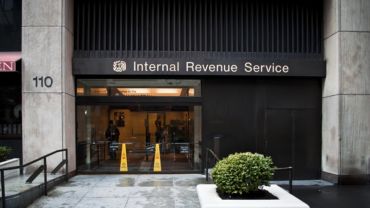A foreign business enterprise without a fixed place of business in the U.S. may nevertheless have a U.S. permanent establishment (PE) based on services provided in the U.S. on its behalf. This can occur in one of two ways: 1) the sales activities for the foreign enterprise are carried on in the U.S. through a dependent agent (called an agency PE) or 2) the enterprise’s contracted-for non-sales services (called enterprise services) carried on in the U.S. cause the enterprise to have a PE in the U.S. as that term is defined in the Permanent Establishment Article of the applicable tax treaty, which could have an affect on tax exemptions.
Agency PE
Engaging in sales activities through an independent agent acting in the ordinary course of its business will not result in a foreign enterprise having a U.S. permanent establishment. Such independent agents typically include brokers and commission agents who act on behalf of multiple enterprises. In order to be considered an independent agent, an agent must be both legally and economically independent of the foreign enterprise. An agent acting under an exclusive arrangement with a foreign enterprise will be considered an independent agent only if the agent is operating on an arm’s-length basis with the foreign enterprise. The fact that an independent agent of a foreign enterprise has a fixed place of business in the U.S. will not cause the foreign enterprise to have a U.S. permanent establishment under the fixed-place-of-business permanent establishment rule.
Engaging in sales activities through a dependent agent will cause a foreign enterprise to have a U.S. permanent establishment, however. A dependent agent is an agent that has the authority to negotiate contracts in the name of an enterprise and regularly exercises that authority. The fact that a foreign enterprise has an ownership interest in its agent (such as owning a U.S. subsidiary) does not, in and of itself, result in the agent being considered a dependent agent of its foreign affiliate. Whether an affiliated agent is independent of its affiliated foreign enterprise is based on the same conditions as for an unaffiliated agent; that is, the affiliated enterprise must be both legally and economically independent of its affiliated foreign enterprise to avoid being classified as a dependent agent.
Enterprise Services PE
Whether enterprise services performed in the U.S. will create a U.S. PE varies by treaty. The PE definition included in most treaties lacks a specific services-based provision. However, the PE definition included in the treaties with the following 15 countries include a long-term project permanent establishment provision: Bulgaria, Canada, China (PRC), Czech Republic, India, Indonesia, Jamaica, Kazakhstan, Philippines, Portugal, Slovak Republic, South Africa, Sri Lanka, Thailand and Venezuela.
Article 5 (3)(c) of the treaty with China is illustrative:
The furnishing of services, including consultancy services, by an enterprise through employees or other personnel engaged by the enterprise for such purpose, but only where such activities continue (for the same or a connected project) within the country for a period or periods aggregating more than six months within any twelve-month period.
The duration and other conditions vary by treaty.
The permanent establishment definition of the treaty with Canada includes two types of services-based permanent establishments, which were added by amendments to the treaty effective for 2010:
Long-Term Project: Services are provided in the United States for 183 days or more in the aggregate in any 12-month period for a connected project (i.e., a coherent whole both geographically and commercially) for customers who are U.S. residents or who are non-U.S. residents who maintain a permanent establishment in the United States and the services are attributable to that U.S. permanent establishment.
Key Man PE: Services are provided by an individual who is present in the United States for more than 183 days in any 12-month period and during that 183-days-or-greater period or periods, more than 50% of the gross business revenue is derived from those U.S. services. An entity with a Key Man PE is taxed under the Business Profits Article of the treaty.
The permanent establishment definition in the treaty with Bulgaria also includes such a Key Man PE provision.
Whether contracted-for enterprise services will cause the foreign enterprise to have a U.S. PE is based on all the facts and circumstances. Engaging in contracted-for services in the U.S. will not cause a foreign enterprise to have a PE in and of itself. Likewise, having subcontractors provide the contracted-for services will not cause a foreign enterprise to have a U.S. permanent establishment. Such contracted-for services can cause a PE, however, if the work is at a fixed place of business that is at the disposal of the foreign enterprise for reasons other than the contracted-for work being performed there.
On October 12, 2011, the Organisation for Economic Co-operation and Development (OECD) issued the discussion draft, “Interpretation and Application of Article 5 (Permanent Establishment) of the OECD Model Tax Convention.” This discussion draft, which is now under discussion by tax professionals, includes proposals for updating the commentaries to Article 5 that help to clarify when enterprise services will result in a PE.





